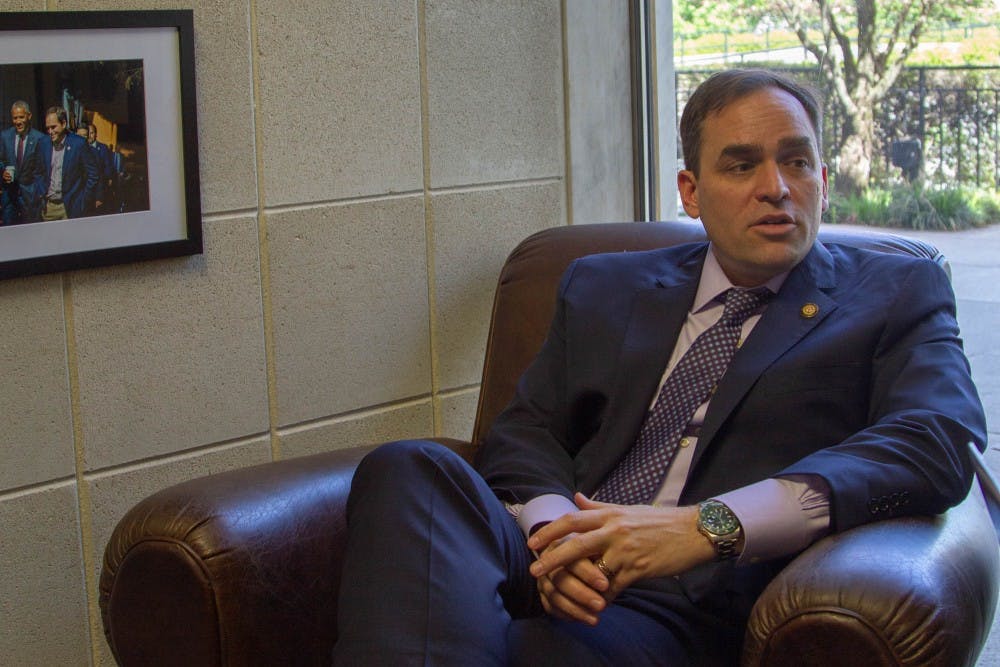When Sam Gomez Olvera was a senior in high school, he, like many other students pursuing higher education, applied for scholarships. As he waited to hear back from the Golden Door Scholarship, a scholarship fund for Deferred Action for Childhood Arrivals recipients, the stakes were high: not getting the scholarship would prevent him from attending a four-year institution.
“It was like a do-or-die moment,” he said.
Gomez Olvera is one of approximately 25,000 DACA recipients living in North Carolina. Though he immigrated to the United States when he was six months old, his undocumented status required him to pay out-of-state tuition and made him ineligible for federal financial aid because he would be considered an international student.
Although Gomez Olvera received the scholarship and is now a sophomore at UNC, he said many of his friends were not as fortunate.
Senate Bill 615 would authorize DACA recipients to receive in-state tuition at UNC constituent institutions and state community colleges if they meet two requirements: they received a high school diploma or equivalent diploma within North Carolina, and they attended in-state schools for a minimum of two consecutive years immediately prior to completing high school.
N.C. Sen. Joyce Waddell, D-District 40, and one of the bill’s primary sponsors, said she thinks equitable access to public education plays a role in maintaining the fabric of any democratic society.
“Sometimes we find that the post-secondary options for undocumented students are severely limited, which limits their future social and economic mobility, and this legislation further gives incentives for undocumented students to finish high school as it would provide affordable postsecondary school options,” she said.
N.C. Sen. Wiley Nickel, D-District 16, is also a primary sponsor of the bill. He said he's angry about President Donald Trump’s immigration policy and wants to communicate that immigration is an issue he cares about and is actively working on.
“I got elected as a progressive Democrat, and one of the big issues that we don’t get to talk a lot about on the state level is immigration policy. But for me, I’ve just been furious about the lack of federal immigration policy,” he said. “We wanted to do something to voice that frustration.”




